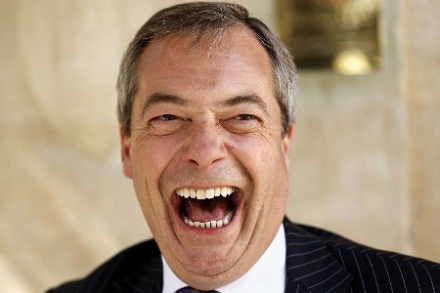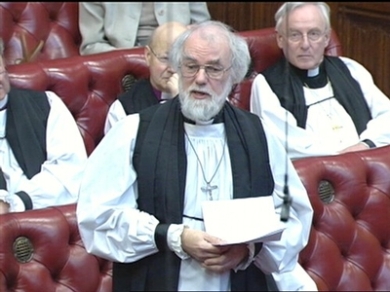That title could be considered somewhat daft or inflammatory by some, but to many of us, it’s a totally justifiable statement.
Yes, we have directly elected politicians representing us in the House of Commons, and for those of us in Scotland, Wales or Northern Ireland, we also have our assorted devolved parliaments or assemblies – although for some strange reason, each has different powers and levels of responsibility.
Of course, England doesn’t have its own parliament, specifically for English matters. Why do people in England not want their own parliament? I can only assume that they feel that there’s no great need, as they already elect the overwhelming majority of MPs in the UK Parliament.
Some wonder why we Yes Scotland supporters are seemingly so desperate to cut all political ties with the rest of the UK (rUK) when we already have our own devolved parliament at Holyrood. Why do we want to stir things up and drag ourselves through unnecessary turmoil? Who would be so mad as to do that??
People who value the principles of democracy.
I thought to myself ‘what if the UK as a whole was in a similar position to Scotland at Westminster?’. What if the 3rd and 4th placed parties governed in coalition for England? A totally hypothetical question, of course – yet not irrelevant to the current debate. We in Scotland – as indeed in Wales and Northern Ireland too – are governed by a coalition that the vast majority of our electorate rejected at the ballot box.
So I applied the same rules to the UK as a whole, using the 3rd and 4th placed parties as the hypothetical coalition government.
Using vote percentage, this would result in a Lib Dem/UKIP government. What a lovely thought! UKIP, thankfully, won no seats though in 2010.
If we did it another way, using number of seats won, the 3rd and 4th places would be held by the Lib Dem’s and the Democratic Unionist Party. How happy would English voters be if they were governed partly by the DUP, and neither of the 1st or 2nd most popular parties?
I hadn’t realised before that the DUP has 8 MPs at Westminster – and there lies another problem with the UK system. The DUP have 8 seats, the SNP 6. DUP candidates received 168,000 votes in total. SNP candidates received 491,000. True to say that the SNP votes were spread over a larger area, but it highlights one of the main drawbacks of the Westminster system: a party with almost 3 times the popular vote of another ends up with 2 fewer seats. How is that a representative parliament?
With the Scottish Parliament, the Additional Member System (AMS) is used, as indeed it is for both the Welsh Assembly and London Assembly. This results in far fairer representation for the electorate and produces a more diverse parliament than would ordinarily be achieved under the normal first-past-the-post system. Still not perfect, but a lot better than the Westminster model.
As the Tories and Labour would be likely to lose seats if such a system were rolled out for Westminster elections, it’s no real surprise that they either continue to maintain that FPTP is the best way, or ignore the topic completely. Likewise, the other main obstacle to true democracy in the UK: the House of Lords.
I always find it rather amusing to see Labour activists going on about democracy, claiming to be it’s biggest supporters. Yet here we are in 2013, having had 3 terms of Labour government over 13 years, and the entirely unelected HoL still exists. In fact, with Tory changes, it now has MORE unelected ‘Lords’, ‘Ladies’, Bishops etc, than ever before. That’s EVER BEFORE.
Occasionally, a Labour MP will talk about reforming the HoL. From time to time, mutterings about actually electing members to the second chamber can be heard, if you listen very carefully. Nothing is ever done about it, of course.
The Lib Dem’s sporadically chirp on about it, as they used to about a federal system of government for the UK. Not heard a peep since they actually formed a coalition with their Tory chums though, funnily enough.
The Tories and Labour pretty much have the HoL divided up between themselves. Another chamber of parliament, another almost guaranteed quota of seats. Why change something and risk losing seats? Not for silly democracy’s sake! And anyway, what would their MPs do when they ‘retire’ if they didn’t have a title, expenses and a warm place to have a wee afternoon siesta?? It’s like an Elephant’s Graveyard for them, with the additional bonus of some cash on the side – if they can distinguish between an undercover journalist and someone with the morals of a small pox virus.
Many people defend the 2 chamber system, stating that the upper house has the freedom to hold more in-depth debates on important issues. Great! It’s still entirely undemocratic though. I could host long debates with a mate of mine – would that be an acceptable form of government for anyone? No, of course not. Yet that’s effectively what the HoL is.
There is one other parliament where we have less influence than we should: the European Parliament.
Scotland has a population of roughly 5.25 million. We have 6 MEPs representing us in Europe. Malta has a population of 0.45million. They have 6 MEPs representing them in Europe. That’s a country with 8.6% of the population that we have with an identical number of MEPs. That simply can’t be right, by anyone’s reckoning. Independent countries of similar size to Scotland have double that: Ireland (with 4.5million citizens) has 12 MEPs, Slovakia and Denmark with 5.4-5.5million have 13. Considering that the Scottish Parliament covers legislation on the majority of our civic issues, we are grossly under-represented at the European level – where politicians legislate on mainly civic issues.
So the UK as a whole is pretty undemocratic, and we in the smaller constituent nations are even worse off. We have our various devolved parliaments and assemblies, yet the people we democratically elect to represent us in them are only permitted to make certain decisions on our behalf.
The Labour and ConDem UK Governments have brought us enough financial deficit to affect every single one of us for at least a generation. They, and their ‘Better Together’ partners, insist that we vote to maintain our democratic deficit – for eternity.
A Yes vote will ensure that we rid ourselves once and for all of this almost anti-democratic system. No more unelected House of Lords. No more 3rd & 4th placed parties governing us. No more under-representation in Europe.
That’s democracy, and it’s worth fighting for.







